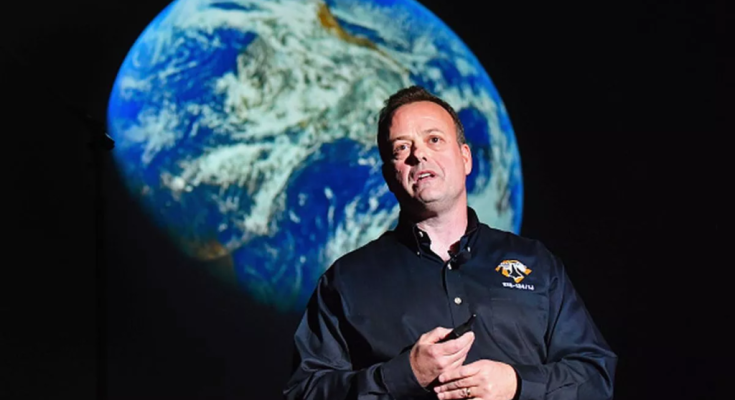When Ron Garan, a former NASA astronaut, spent 178 days in space, he experienced a profound cognitive shift known as the ‘overview effect.’ This phenomenon, common among astronauts, involves a feeling of awe and a realization of the interconnectedness of all life on Earth. Garan’s time on the International Space Station (ISS) gave him a unique perspective on our planet and led to a significant revelation.
The Thinness of Earth’s Atmosphere

One of Garan’s most striking observations was the thinness of Earth’s atmosphere. He described it as “paper-thin” and crucial for sustaining life on the planet. “When I looked out the window of the International Space Station, I saw the unbelievable thinness of our planet’s atmosphere,” the astronaut said. This realization hit him hard, underscoring the fragility of our life-support system.1
A World Teeming with Life

Garan also saw Earth as an “iridescent biosphere teeming with life.” From space, he couldn’t see borders, economies, or the other constructs that often dominate human concerns. Instead, he saw a vibrant, interconnected system of life. This view led him to question many of the priorities and systems that govern life on Earth.2
The Lie We Live

The astronaut’s most significant realization was that humanity is “living a lie.” He noted that human-made systems treat everything, including Earth’s life-support systems, as subsidiaries of the global economy. “I didn’t see the economy,” he said. “It’s obvious from the vantage point of space that we’re living a lie.”.3 This perspective suggests that our economic activities often overlook the environmental costs, jeopardizing the planet’s health.
A Call for Change

Upon his return to Earth, Garan became a vocal advocate for environmental sustainability and global cooperation. He emphasized the need to shift our priorities from economy and society first to planet, society, and then economy. “We need to move from thinking economy, society, planet to planet, society, economy,” Garan stated. This shift is essential for continuing our evolutionary process and ensuring the planet’s well-being.
The Fragility of Earth

Other astronauts have shared similar sentiments. Michael Collins of Apollo 11 described Earth as “fragile” and “tiny,” while Edgar Mitchell of Apollo 14 spoke of an “explosion of awareness” upon seeing Earth from space. These experiences highlight the transformative impact of viewing Earth from space and the urgent need for a collective reevaluation of our actions.
Advocating for Global Awareness

Since returning to Earth, Garan has dedicated himself to raising awareness about environmental issues and the interconnectedness of all life. He believes that peace on Earth can only be achieved by recognizing the interrelated structure of all reality. “We’re not going to have peace on Earth until we recognize the basic fact of the interrelated structure of all reality,” Garan emphasized.
A Hopeful Future

Despite the challenges, the former astronaut remains hopeful. He believes that humanity can evolve in consciousness and embrace a larger reality. This shift could lead to a future where we no longer see the world in a two-dimensional “us versus them” mindset but understand the true multi-dimensional reality of the universe. “That’s when we’re going to no longer be floating in darkness … and it’s a future that we would all want to be a part of,” Garan concluded.



